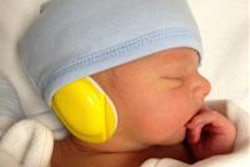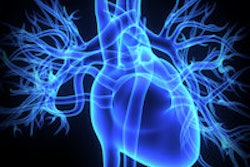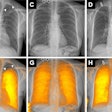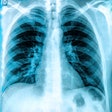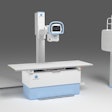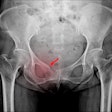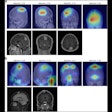
Where a person's body fat is stored may increase their risk of having a heart attack, a stroke, and diabetes -- and the level of risk may also be influenced by the person's sex, according to research presented on November 28 at the RSNA 2017 meeting in Chicago.
A team led by Dr. Miriam Bredella of Massachusetts General Hospital (MGH) in Boston investigated differences in fat distribution patterns among overweight and obese men and women, along with their associated cardiometabolic risk.
 Dr. Miriam Bredella from MGH.
Dr. Miriam Bredella from MGH."We hypothesized that there are gender-based differences in body composition and ectopic fat deposits, and that these could be associated with gender-specific risk profiles for diseases like diabetes, heart disease, and stroke," Bredella said in a statement released by the RSNA.
Fat distribution is an important factor for cardiometabolic risk, according to Bredella's team. In "apple-shaped" bodies, fat is stored around the midsection, while in "pear-shaped" bodies, it is stored in the hips and thighs. Furthermore, the type of fat stored also affects a person's risk. Ectopic fat is found in the abdomen, the muscles, the liver, and other organs.
To explore how a person's fat distribution and sex might affect his or her risk of heart attack, Bredella and colleagues recruited 200 young overweight and obese people for the study. Of these, 109 were women and 91 were men; they were of similar ages, with a mean age of 37, and had comparable body mass indexes (BMI).
The participants fasted overnight and then underwent dual-energy x-ray absorptiometry (DEXA) and CT scans to determine body composition, as well as MR spectroscopy (MRS) for fat quantification and analysis.
Women in the study had a higher percentage of fat and more subcutaneous fat but lower lean mass than the men. However, the men had more visceral adipose tissue or ectopic fat deposits in the abdomen around the internal organs (i.e., "beer belly") and more fat in the muscles and liver.
"Compared to women with the same BMI, obese men have relatively higher visceral fat -- i.e., fat within muscle cells and liver fat, which are all risk factors for cardiometabolic disease," Bredella said. "However, men have higher muscle and lean mass, which are protective for cardiometabolic health. Women have a higher relative amount of total body fat and higher superficial thigh fat, which is protective for cardiometabolic health."
What's the bottom line? The men in the study had higher overall cardiometabolic risk, but ectopic fat was not significantly associated with it. However, ectopic fat in women was strongly associated with cardiometabolic risk.
"The detrimental fat deposits deep in the belly, muscles, and liver are more damaging for cardiometabolic health in women compared to men," Bredella said.






